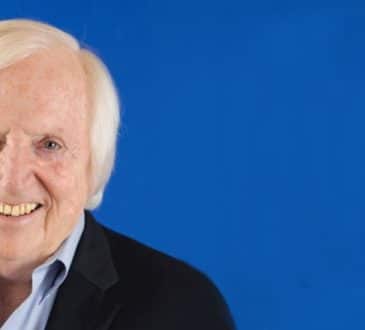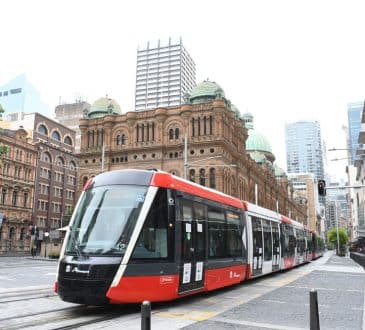Countries That Surprisingly Don’t Sell Coca-Cola Or Pepsi

In this report, we’ve gathered information from several sources to create a list of 15 countries where Coca-Cola and Pepsi face distinct difficulties. These may include competition from local businesses, lack of access, or a complete lack of presence in the market. Even though these two companies have a broad reach, their experience in each area differs.
The Global Soft Drinks Market: The worldwide soft drink industry saw a valuation of approximately $530 billion in 2022 and is expected to surpass $620 billion by 2030. Coca-Cola and PepsiCo are prominent players in this sector, with their items well-known in all parts of the world. Their ubiquity is such that their brand names are frequently utilized interchangeably with the terms “soda” or “soft drink.”
Coca-Cola’s Global Dominance: Since its founding in 1892, The Coca-Cola Company has spread to more than two hundred nations and territories. In 1899, Coca-Cola’s international expansion began with an export to Cuba. With the outbreak of World War II, the company’s reach broadened extensively, hoping to deliver a sense of home to every American service member stationed abroad. The global franchise distribution system, which manufactures syrup concentrate and supplies bottlers all over the world, guarantees the daily availability of over two billion servings of Coca-Cola in 900 bottling plants.
PepsiCo’s Global Presence: PepsiCo, Inc. ranks second in the list of the world’s most valuable soft drink brands, estimated at a worth of $18.4 billion in 2021. Pepsi can be found in more than 200 countries and regions, much like its competitor Coca-Cola. In certain parts of the world, such as India, Pakistan, Guatemala, Oman, and parts of Canada, Pepsi outsells its competitor.
Methodology: Our ranking of these countries is based on several factors, including competition from local brands, outselling by other beverages, limited availability, and cessation of operations over time. We have relied on credible news stories and publications to compile this list. Let’s now explore the countries where Pepsi or Coca-Cola face distinct market dynamics compared to their global dominance.
- Iran
Status: Facing Local Competition
Rival Beverage: Zamzam Cola
Market Share: 16%
Zamzam Cola, produced in Iran by Zamzam Group, is among the country’s pioneering carbonated soft drinks. Once holding a 50% share in the Iranian soft drink industry in 2007, it now accounts for 16%, with Coca-Cola at 28% and Pepsi at 20%. The name “Zamzam” is derived from the Well of Zamzam in Saudi Arabia, a significant site during the Hajj Pilgrimage for Muslims. - Peru
Status: Outsold by a Local Brand
Rival Beverage: Inca Cola
Market Share: 26%
Inca Cola, marketed as ‘the taste of Peru,’ has a passionate following among Peruvians. The drink features Incan designs on its packaging labels, contributing to its popularity. 2012 saw Inca Cola having a 26% market share in soft drinks, beating Coca-Cola’s 25.5%. Recent reports confirm that Inca Cola still outsells Coca-Cola in Peru. - Myanmar
Status: Limited Availability
The Coca-Cola Company reopened its operations in Myanmar in 2013, following the end of military junta rule in 2011. PepsiCo, Inc. has also increased its presence through local partnerships. Despite these efforts, Myanmar experiences low sales of Coca-Cola and Pepsi. Local alternatives like Star Cola and Max Cola initially dominated the carbonated drinks market. - Namibia
Status: Limited Availability
Namibia has endured a seven-year drought, leading Coca-Cola to cease local production of canned drinks and instead import from South Africa due to water shortages. This decision resulted in market shortages and higher prices for these beverages. - Zimbabwe
Status: Limited Availability
Zimbabwe’s economic crisis and political instability disrupt the operations of several large corporations, including Coca-Cola and Pepsi. Both brands face regular supply shortages due to Zimbabwe’s dwindling foreign exchange reserves. A country that faces hyperinflation and shortages of basics like bread, Coke and Pepsi are like luxury items. Production and supplies of Coca-Cola came to a complete halt twice, first in 2006 and then in 2018. - Democratic Republic of the Congo
Status: Limited Availability
Finding Coca-Cola or Pepsi outside the capital, Kinshasa, or other major towns in the Congo can be challenging due to a lack of transport infrastructure. As one of the five poorest countries globally, the Democratic Republic of the Congo faces economic hardships that make these beverages unaffordable for many. - Somalia
Status: Limited Availability
The Coca-Cola Company entered the Somali market in 2004 by establishing a factory in Mogadishu. However, civil unrest forced the company to relocate its operations to Hargeisa, the capital of the self-declared breakaway Republic of Somaliland, in 2012. This shift created a shortage of Coca-Cola in much of Somalia. Coca-Cola faced conflict-related challenges, including a 2007 looting of its Mogadishu plant and threats from the militant group Al-Shabaab. - Haiti
Status: Limited Availability
Haiti has experienced significant turmoil since 2018, including protests against rising fuel and energy prices and the assassination of President Jovenel Moise. The spread of cholera and famine has exacerbated the situation. Instability in the country has empowered gangs, who have established a blockade around the largest fuel depot, leading to food shortages, acute hunger, and disrupted supply chains. As a result, The Coca-Cola Company and PepsiCo, Inc. have been affected, with their soft drinks scarcely available in the markets. - Sudan
Status: Limited Availability
Armed conflict and economic sanctions have disrupted international trade operations, including those of The Coca-Cola Company and PepsiCo, Inc. Sudan is the largest producer of gum arabic, a key ingredient used in fizzy drinks, candies, and cosmetics. To avoid shortages, Coca-Cola and Pepsi have stockpiled this ingredient for months. - Turkmenistan
Status: Limited Availability
Strict government regulations, including import restrictions and a weakening currency, led Coca-Cola bottlers to cease operations in Turkmenistan in late 2017. For much of that year, Coca-Cola was either unavailable or unaffordable for the average citizen in the country. Tragically, the head of the local Coca-Cola bottling company died from suicide due to distress. - Venezuela
Status: Limited Availability
Western sanctions and economic turmoil in Venezuela have disrupted operations of several international companies, including Coca-Cola, impacting the supply of soft drinks. In 2016, Coca-Cola temporarily ceased operations in Venezuela due to a sugar shortage. Additionally, in 2009, the Venezuelan government banned the sale of Coke Zero in the country. Pepsi also struggled in this economic environment, reporting revenues of only $326 million in 2015 while facing significant charges of $1.4 billion for operating in Venezuela. - Yemen
Status: Limited Availability
Yemen has been engulfed in deadly civil unrest for a decade, leading to disruptions in the supply of various products, including soft drinks. The Coca-Cola Company fell victim to the conflict in 2015 when its bottling factory in the capital, Sanaa, was destroyed in an airstrike by Saudi coalition forces. Both Coca-Cola and Pepsi frequently encounter shortages in local markets due to the challenging law-and-order situation. This has led to the proliferation of bootleg versions and black-market distributions. - Russia
Status: Not Sold
In 2022, The Coca-Cola Company and PepsiCo, Inc. made a joint announcement to exit the Russian market entirely, ceasing operations, halting investments, and promotional activities. This decision followed Russia’s invasion of Ukraine, resulting in the official unavailability of these drinks in the country. Interestingly, the Greek company that bottled and sold Coca-Cola in Russia rebranded itself as Dobry Cola. - Cuba
Status: Not Sold
Cuba was the first country to import Coca-Cola in 1899, and The Coca-Cola Company built its plant in the country in 1906. However, after the Cuban Revolution in 1962 and the Castro government’s seizure of foreign assets, Coca-Cola ceased production and ended its ties with the Cuban market. PepsiCo, Inc. also does not operate in Cuba. - North Korea
Status: Not Sold
North Korea is another country where Coca-Cola and Pepsi are not available due to strained relations with the United States and much of the world. The country has been subject to American sanctions since the 1950s, which were further intensified after North Korea’s aggression against South Korea in the 1980s. However, a report suggests that Coca-Cola bottled in China often finds its way to Pyongyang, bearing Chinese labels instead of the original Coca-Cola labels.
Exploring 15 countries where Pepsi and Coca-Cola encounter unique challenges reveals the intricacies of global markets. Local competition, limited availability, bans, and instability shape the beverage landscape.
Iran’s Zamzam Cola and Peru’s Inca Cola showcase local brand strength. Myanmar and Namibia highlight market complexities. Zimbabwe and Congo exemplify challenges in unstable regions, while Somalia underscores the risks. These cases provide insights into the diverse global soft drink industry dynamics.
Have you read?
Ranked: Most Environmentally Friendly Countries in the World, 2023.
Report: Countries with highest numbers of child marriage, 2023.
Ranked: These Are The Best Museums in the United States, 2023.
Ranked: These Are the Countries with the Highest Kidnapping Rates, in 2023.
Best High-Demand Products for Profitable Online Selling, 2023.
Bring the best of the CEOWORLD magazine's global journalism to audiences in the United States and around the world. - Add CEOWORLD magazine to your Google News feed.
Follow CEOWORLD magazine headlines on: Google News, LinkedIn, Twitter, and Facebook.
Copyright 2025 The CEOWORLD magazine. All rights reserved. This material (and any extract from it) must not be copied, redistributed or placed on any website, without CEOWORLD magazine' prior written consent. For media queries, please contact: info@ceoworld.biz








